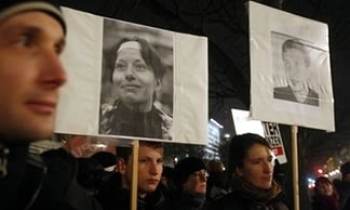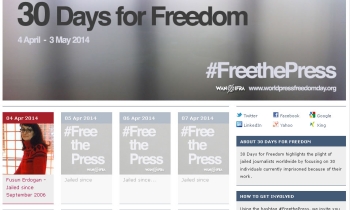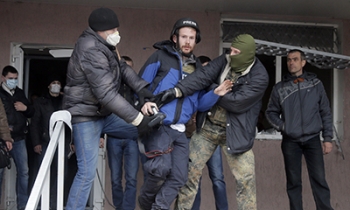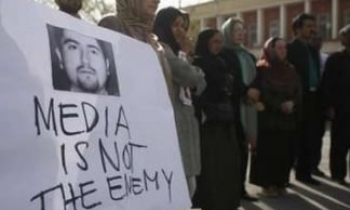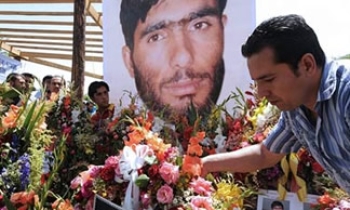Soldiers raided three radio stations in Somalia on Sunday and detained the director of one of the stations, according to journalists who witnessed the events. The raids occurred after heavy fighting and looting over the weekend in the central area of the capital, Mogadishu.
Journalists from Horn Afrik, Radio Shabelle, and Radio Simba told the New York-based Committee to Protect Journalists (CPJ) that government troops took key radio equipment, including computers, mixers, and microphones in order to shutter them. All three stations were off the air on Sunday but Radio Shabelle and Horn Afrik managed to renew broadcasting Monday.
On Sunday, government forces raided the central Howl-Wadaag district, including Bakara market, a day after at least 14 people were killed and 30 wounded in heavy fighting between soldiers and insurgents. Local journalists suspect key equipment was confiscated from the three radio stations in order to censor reporting of Sunday’s mass looting.
The minister for information, Ahmed Abdisalam, said the central government did not order the raids on the stations and that the prime minister called an emergency meeting on Sunday to investigate the incident, according to local journalists and a VOA report.
“Security forces must be reined in by the Somali government so they do not carry out their own personal agendas against journalists,†said CPJ’s executive director, Joel Simon. “We call on the authorities to ensure all the equipment is returned undamaged to the three radio stations.â€
“The transitional government forces have attempted to strike a blow against media which give airtime to the opposition,†Paris-based Reporters sans Frontières (RSF) said. “This move against the targeted media, who are already operating in difficult conditions, is a serious threat to their very existence.â€
“We are outraged by this new crackdown on the media which should not continue to be the scapegoat of the conflict in the country,†said Gabriel Baglo, Director of the International Federation of Journalists (IFJ) Africa office. “The transitional federal government (TFG) must ensure the equipment is returned, hold those responsible to account and provide assurances to the Somali media community that such raids will not be tolerated in future.â€
An estimated 20 soldiers in two armoured vehicles raided Radio Simba, looting equipment and beating reporter Abdiaziz Hussein Hassan, local journalists said. Soldiers then proceeded to knock down the doors of Radio Shabelle, taking radio equipment and arresting Director Muktar Mohamed Hirabe. Hirabe was released the same day.
The soldiers also confiscated radio equipment at Horn Afrik and ordered the station to be closed, Chairman Saeed Tahlil told CPJ. Journalists at Radio Shabelle and Radio Simba said they were told they would be able to collect their confiscated equipment Tuesday, while Horn Afrik already has its equipment back.
Journalists told CPJ that they suspect the order came independently from a top commander and relative of President Abdullahi Yusuf. Journalists at two of the stations recognised individuals who took part in the raids as security personnel based at the presidential palace.
“The civil government must make a stand and demonstrate that its commitment to press freedom is more than just words, by demanding that the three radio stations are back on air as quickly as possible. This is a crucial time for the transitional government, elected to restore law and order, not to allow the abuses seen under the military government to continue. We expect a strong positive signal from them,†RSF said.
“We believe that journalists' ability to report freely is essential to the nonviolent resolution of conflicts, and that suppression of the media during periods of unrest or armed operations only increases fear and suspicion among the people,†said Omar Faruk, the Secretary General of the National Union of Somali Journalists (NUSOJ).
The violence in Somalia has taken a heavy toll on journalists: Seven Somali journalists were killed because of their work in 2007—the world’s second-highest count behind Iraq. More than 50 others have fled Mogadishu, according to CPJ research.


